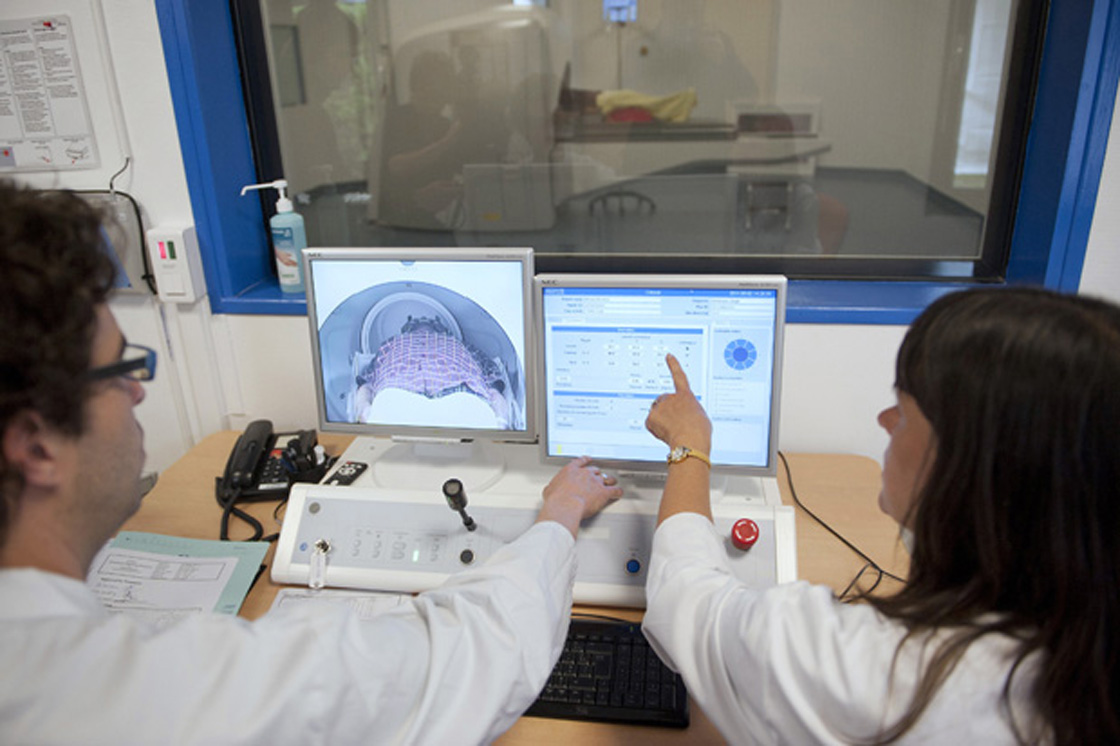Thirty-one year old Olivia Mullin was married with two children, when one day at work she went to lie down and never woke up.

“Her work colleague realized that two hours later she hadn’t come back to her desk, so went to look in on her and she was found dead,” said Tamzin Jeffs, Mullin’s sister.
Mullin had epilepsy and while the condition itself is often controllable with drugs or surgery, it can in some cases lead to what is called Sudden Unexpected Death in Epilepsy (SUDEP). As the name suggests, there is no known cause for the sudden death of a person with epilepsy, but that doesn’t stop people like Dr. Elizabeth Donner, neurologist at the Hospital for Sick Children, from trying to discover an explanation.
“Studies show that in at least 50% of cases a seizure occurs right before the person dies and so we’re trying to better understand what could lead a seizure to cause a person to die,” Dr. Donner said. “We do know that there are strong connections between the brain and the heart and the brain and the breathing systems and so it’s possible that sometimes during a seizure or after a seizure, one of those systems fails.”
As Dr. Donner is discovering, part of the problem is that doctors are often cautious about discussing SUDEP because they are worried about how the patient will take that information. So she co-founded SUDEP Aware with Jeffs.
“We provide information for physicians to help them to be knowledgeable so they can feel comfortable talking about it and we provide information for people with epilepsy and their families so that they know what questions to ask their doctor,” Dr. Donner said.
Jeffs also has epilepsy herself.
“The greatest gift from her death, for me would be to be able to ask others to please, if you know someone with epilepsy, tell them about SUDEP, ask them to speak with their healthcare provide about it,” Jeffs said.
While the possibility of dying suddenly for no apparent reason can sound terrifying to people with epilepsy, Dr. Donner cautions that there are things that can be done.
“Just because we don’t understand the cause of a condition, doesn’t mean we can’t work to reduce its frequency. What we know from some really good quality studies is that there are certain things that increase the risk of SUDEP and so we can counsel people with epilepsy to reduce their risk of SUDEP by working on key items,” Dr. Donner said. “That includes reducing the number of generalized tonic clonic or big shaking seizures that a person has, taking their medications and working with their healthcare provider to look at all the best treatment options for their epilepsy.”
But there is another group of people with epilepsy for which medication and surgery is not an option. Dr. Richard Wennberg, a neurologist at the Krembil Neuroscience Centre and co-director of the Epilepsy Program, believes it is a significant population.
“We’re talking about thousands, really tens of thousands of people in Canada and probably more than 10,000 people in Ontario, who will continue to have seizures despite our best efforts with anti-epileptic medications and who either aren’t candidates for surgery, because we can’t localize a particular spot on the brain where the seizures are coming from, or sometimes have even had surgery that has helped a bit but not enough to completely control the seizures,” Dr. Wennberg said.
The future is bleak for people with this so-called intractable epilepsy. There are palliative treatments involving stimulating nerves in the neck or brain, but those aren’t a cure.
“At this point in time it’s almost a hopeless situation,” Dr. Wennberg said. “I fear that we’re going to need some entirely new paradigm to try and uncover a treatment for this patient group which right now is just not being effectively managed by medicine.”
Finding a new treatment is a goal that may ironically have been unintentionally complicated by epilepsy awareness groups themselves.
“I think the epilepsy awareness movements over the past 20 years have often emphasized de-stigmatization of the disorder, which is important, but that has come at the cost of minimizing the severity of the disease for very, very many people,” Dr. Wennberg said.
But, even less severe cases can still have a real impact on a person’s quality of life.
“The quality of life is impacted significantly by people who have as few as three or four seizures a year, because that will mean they won’t be able to maintain their driver’s license,” Dr. Wennberg said. “And despite human rights bills in all provinces and states that prevent people losing their job because of a physical disability, it’s the norm that people who have seizures that are incompletely controlled will end up losing their employment.”



Comments